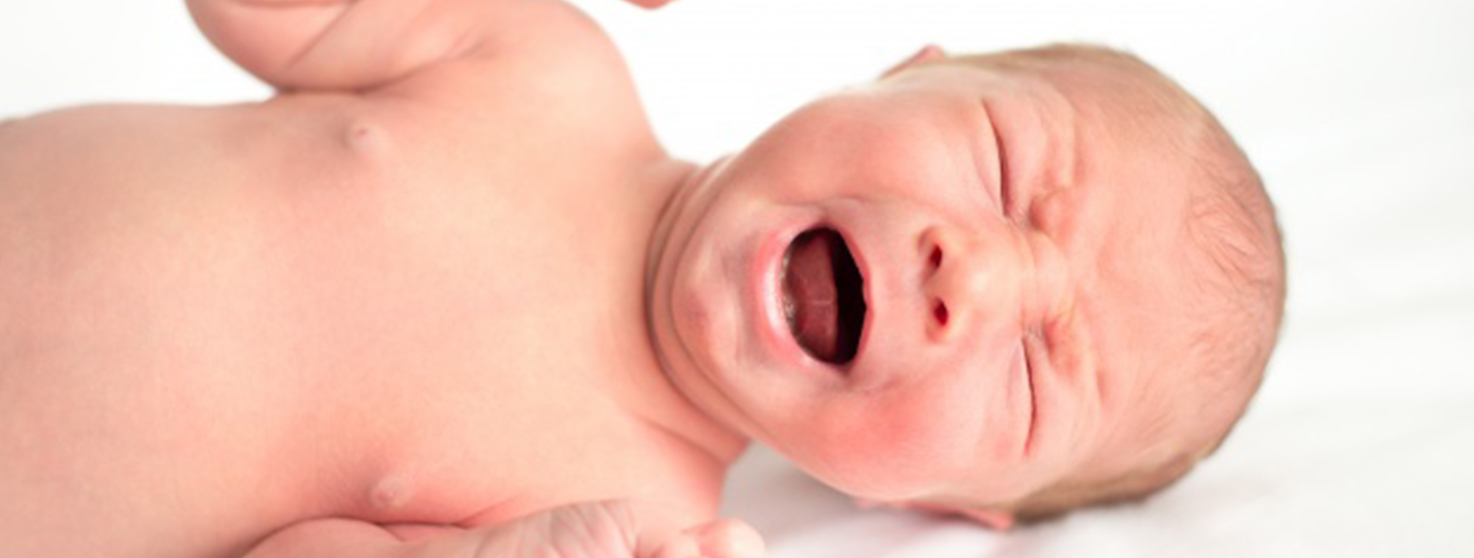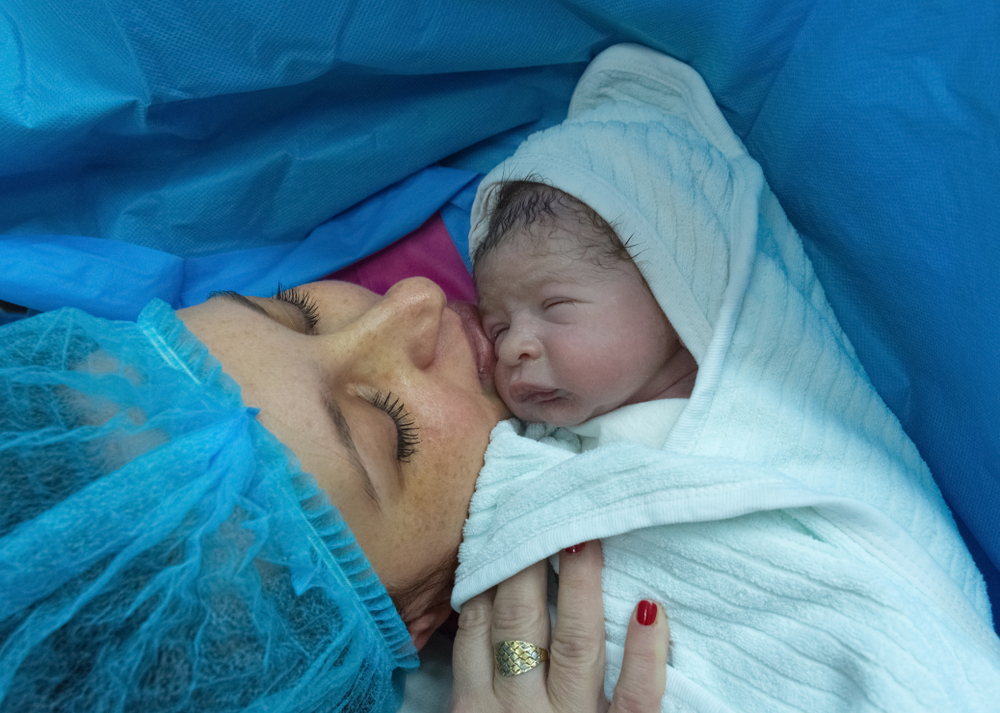Infants health
Infantile Colic: Definition and Causes

Definition:
Episodes of crying for more than three hours per day, for more than three days a week, for three weeks or more in healthy infants. Crying episodes usually occur in the evening or at night, and decrease in severity after 3-4 months of age.
Incidence:
Infantile Colic affects 5-25% of infants, and it occurs at the same rate in boys and girls.
Cause:
While the exact cause for colic is not really known, it may be due to gas formation or due to intestinal cramps. It may also be due to immature digestive enzymes or digestive tract nervous system.
Diagnosis:
For diagnosis of colic, first we need to rule out all other possibilities that may cause the baby to cry:
-
Hungry Baby:
shows by baby not gaining proper weight. -
GERD (Gastro-Esophageal Reflux):
it happens when digested milk or gastric juice go up to esophagus. This causes significant pain and attacks of crying, sometimes vomiting, and the cry is usually associated with extension of the neck and arching the back. -
Milk allergy:
Some babies cry due to pain caused by abnormal reactions to milk either due to lactose intolerance or cow protein intolerance. -
Constipation and anal fissures.
-
Rare, but important causes, include UTI (urinary tract infection), seizure disorders, or infantile migraine.
How to diagnose:
The diagnosis for infantile colic can usually be made through collecting proper information about the baby’s history and adequate physical examination. In rare cases, a doctor may ask for x-rays and blood tests.
Signs and symptoms that you need to be concerned about:
-
Fever
-
Vomiting, when it is either projectile, bloody or greenish
-
Changing stools, diarrhea with blood or mucus.
-
Crying almost the whole day, especially in a previously quiet baby
-
Attacks of Cyanosis or Apnea
-
Inadequate weight gain
Treatment:
-
You should consult your doctor first.
-
Always remember that colic disappears at 4 months.
-
Try one remedy at a time to see if it calms your baby or not.
-
There is no treatment for colic, but there are some things that may help calm and relieve your baby, such as:
-
Lay him on his back in a quiet, dark room.
-
Swaddle baby in a blanket.
-
Lay baby on your lap, facing down and gently massage their back.
-
Very gentle abdominal massage around the belly button; you can also flex the knees towards her tummy.
-
A warm (not hot!) water bottle on baby’s belly.
-
Medicines like
-
Simethicone (can we have a small description here?) please ask the doctor
-
Probiotics can sometime be used to help improve digestion and decrease the severity of colic. Examples?
-
-
Note: Some available medicines should not be used such as Antispasmodics and Opiates. Make sure you know all the components of compounds such as Gripe Water.
In addition, Anise and other herbs are also not recommended
-
If the baby is breastfed sometimes modulation of the mother’s food may help.
-
If baby is formula-fed a change of formula type especially to lactose free ones might help.
Impact of Baby Colic:
Baby colic can sometimes be a problem for the entire family and may put parents under pressure especially if both are working and have no external support from family or friends. Lack of sleep and extended fatigue can cause irritability, anger towards baby, or depression. Our best advice for parents of newborns would be for them to understand baby colic, learn about the best methods to relieve baby, and find ways to ensure adequate rest for themselves. *Source for the main picture: Freepik














